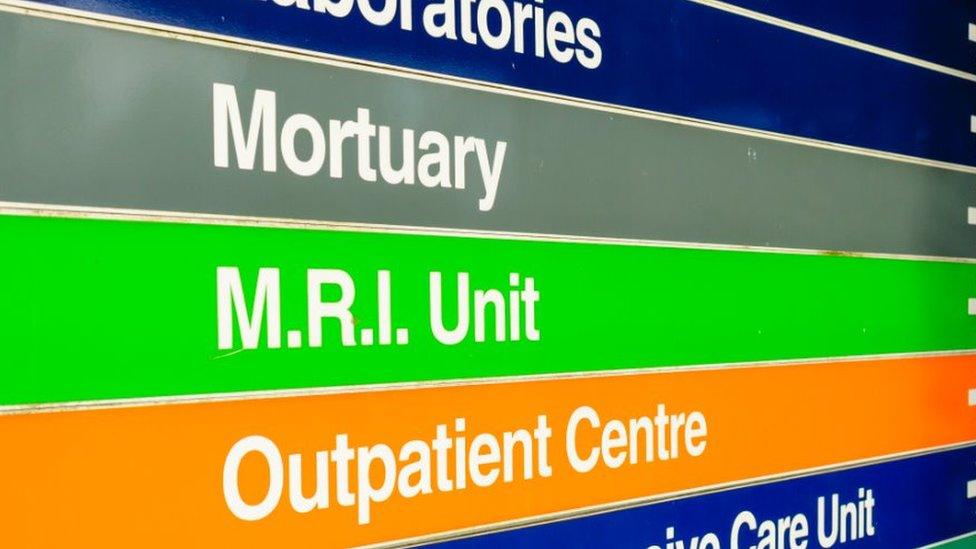Coronavirus: Mortuaries to be expanded by 30,000 spaces
- Published
- comments

The government says it is to provide an extra 30,000 temporary mortuary places during the coronavirus pandemic.
The move is a precaution rather than a prediction, say ministers.
Local government minister Simon Clarke said the government did not want to alarm people but had to ensure capacity for the worst possible outcome.
"We all hope these contingencies will not be needed... that requires everyone to play their part in the national effort," said Mr Clarke.
"We're trying to strike an appropriate balance," he added.

A SIMPLE GUIDE: How do I protect myself?
HOPE AND LOSS: Your coronavirus stories
LOOK-UP TOOL: Check cases in your area

Before the coronavirus crisis there were 18,000 public mortuary places around the country with a similar number provided by funeral directors.
As part of the new capacity, local authorities are using existing buildings and in some places specially adapted modular buildings are being sited next to existing NHS and other public mortuaries.
Last week, one of the government's senior scientific advisers - Sir Jeremy Farrar, director of the Wellcome Trust - said the UK was likely to be "one of the worst, if not the worst affected country in Europe" in terms of the number of deaths.
In response, Mr Clarke said: "We have started to see a flattening of the curve because people are following the measures.
"We want to make sure that we have the right capacity for the most pessimistic possible outcome.
"It's about making sure that we have the right resources in place for a range of outcomes and we all hope these contingencies won't be needed.
"But we do want to make certain that we are not caught without enough capacity, that would obviously be dreadful."
Emergency planning
Prof Jim McManus, director of public health for Hertfordshire and vice president of his professional body, said his area, like others, had planned for many years for such an emergency.
"Most people have identified buildings that can be converted and worked on within a matter of weeks."
Prof McManus said there was now extra provision in place in Hertfordshire: "Whatever the numbers, we will be able to hold in dignity all those who might die."
Meanwhile the bereaved are being urged to continue to hold funerals as quickly as possible, despite the restrictions they face.
The message from the government is that families should not think it better to wait until the end of the lockdown.
David Collingwood, director of funerals at Co-op Funeralcare - the biggest provider in England, Wales and Scotland - said most families were taking advice and going ahead with funerals.
"People might now be thinking there's light at the end of the tunnel.
"Even if restrictions were lifted we would still be limiting social contact," Mr Collingwood said.
The National Association of Funeral Directors has criticised some local councils for banning all mourners.
It said this went beyond government guidance and was not in the interests of bereaved families.
The government has now issued new guidance, underlining that close family members should be able to attend.